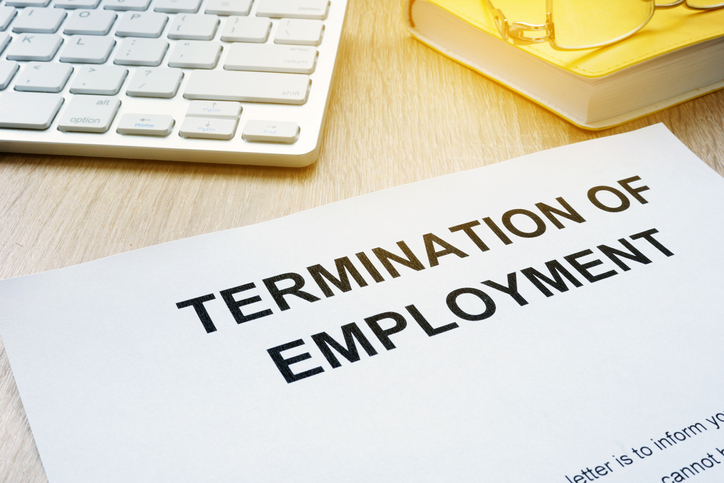Picture this – your employee requests an advance of holiday pay and a copy of their contract of employment. You deem that to be the employee serving notice to terminate their employment. It turns out that this was not the case. Will that dismissal be fair or unfair?
In Impact Recruitment Services Ltd v Korpysa, the Employment Appeal Tribunal (“EAT”) have ruled that a mistaken, but genuine belief that an employee had resigned, could amount to a fair reason for the dismissal of an employee.
Where an employer can demonstrate that the reason for an employee’s dismissal was for some other substantial reason (“SOSR”) under section 98(1)(b) of the Employment Rights Act 1996 (“ERA”), that dismissal may be fair. There is no statutory definition of what SOSR is intended to be, which leaves much open to interpretation. What the reason is will depend entirely on the facts of each case.
When looking to implement a SOSR dismissal, an employer must show:
- that the reason relied upon was the sole or principal reason for the dismissal; and
- that the decision to dismiss for that reason was reasonable in all the circumstances.
Some familiar examples of where SOSR might be used include business reorganisation, refusal to accept changes to terms and conditions or a general breakdown in relationships.
The EAT have recently considered the position where an employer engages in conduct which would amount to a dismissal, based on a genuine belief that an employee had resigned and whether the tribunal erred in their interpretation of the above two-stage test.
Background
Ms Korpysa was employed by an agency, Impact Recruitment Services (“Impact”), and had been placed in a role with Howden Joinery in 2018. As a result of the COVID-19 pandemic in March 2020, Howden Joinery informed most of their agency staff, including Ms Korpysa, that they would be closing down operations. Ms Korpysa, was one of the agency staff who was no longer required.
On 1 April 2020, a conversation was held between Ms Korpysa and her manager, Mr Filipski. Mr Filipski said that, during this conversation, Ms Korpysa said that she had found alternative employment and requested that her P45 be provided, along with payment for outstanding holiday. Ms Korpysa’s subsequent evidence denied this – she stated she had requested a copy of her employment contract and an advance of holiday pay, whilst looking for alternative employment. Mr Filipski treated Ms Korpysa’s requests as notice of resignation and Ms Korpysa received her final payslip on 7 April with her P45 being issued shortly thereafter. Ms Korpysa brought an unfair dismissal claim, among other complaints.
The majority at tribunal accepted Ms Korpysa’s evidence and found that Mr Filipski was mistaken. Ms Korpysa requesting a copy of her contract of employment and asking for an advance of pay did not, alone, amount to a clear and unequivocal resignation. Impact was, therefore, wrong to believe that Ms Korpysa had resigned.
The Tribunal found that the reason for the dismissal was the mistaken belief of resignation, which they felt was not a potentially fair reason for a dismissal, and therefore the dismissal was both procedurally and substantively unfair.
Appeal
Impact appealed to the Employment Appeal Tribunal (“EAT”). Impact did not dispute the finding that Ms Korpysa had been dismissed, but instead argued that the tribunal had erred by:
- not correctly considering whether the reason for the dismissal, namely a mistaken belief of a resignation, could qualify as an SOSR reason, and therefore potentially be fair reason for the dismissal; and
- automatically concluding that Impact had not acted “reasonably” in treating that mistaken belief as the reason for the dismissal.
In summary, the EAT agreed with the tribunal that, where an employer has engaged in conduct which amounts to dismissal because of a genuine, but mistaken belief, that belief would be the reason for dismissal. However, they found that such a belief may then constitute a fair reason for dismissal under SOSR. The EAT accordingly found that the tribunal’s decision was flawed, and the employer should have been given the opportunity to demonstrate an SOSR case and show how their response had been fair and reasonable. This would have included whether Mr Filipski reasonably believed that Ms Korpysa had resigned, and whether Impact had taken any steps which a reasonable employer would take in determining this, before taking action.
The appeal was accordingly allowed, and the majority decision of unfair dismissal quashed. The case has been remitted to the tribunal for a fresh decision on whether Impact can show the reason for the dismissal was a potentially fair reason, and if so, whether the dismissal was fair or unfair.
Comment
While relatively unusual, this is an interesting case that provides useful confirmation that a mistaken belief is potentially capable of being treated as SOSR. The EAT commentary also serves as a reminder that the threshold for what is considered a substantial reason for SOSR purposes is relatively low. It is important, however, to remember that each case will turn on its own very specific facts and a thorough assessment of those facts will continue to be key when dealing with SOSR dismissals. It will still fall to the employer to demonstrate that the reason for the dismissal falls within section 98(1)(b) of the ERA 1996, and that the dismissal was fair in all the circumstances.
If you have any questions regarding the issues raised in this case, please contact [email protected]


